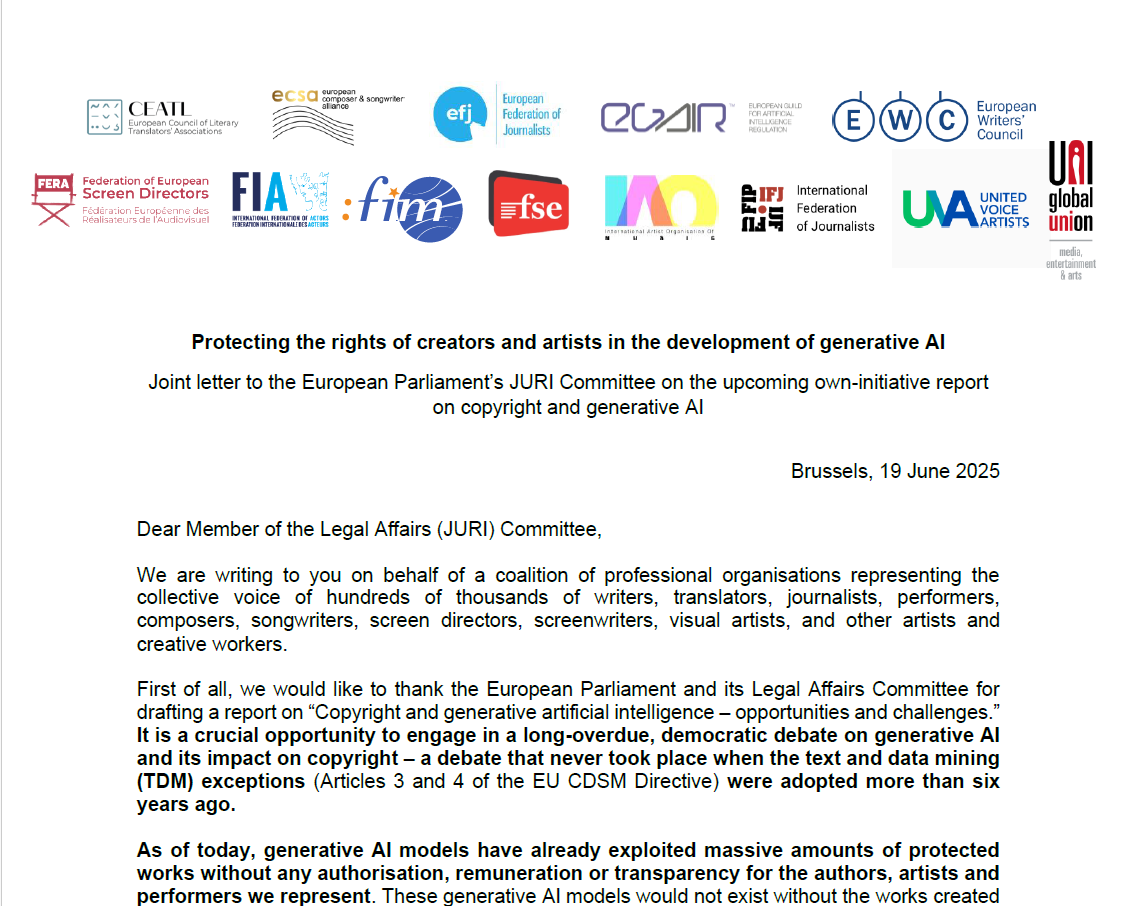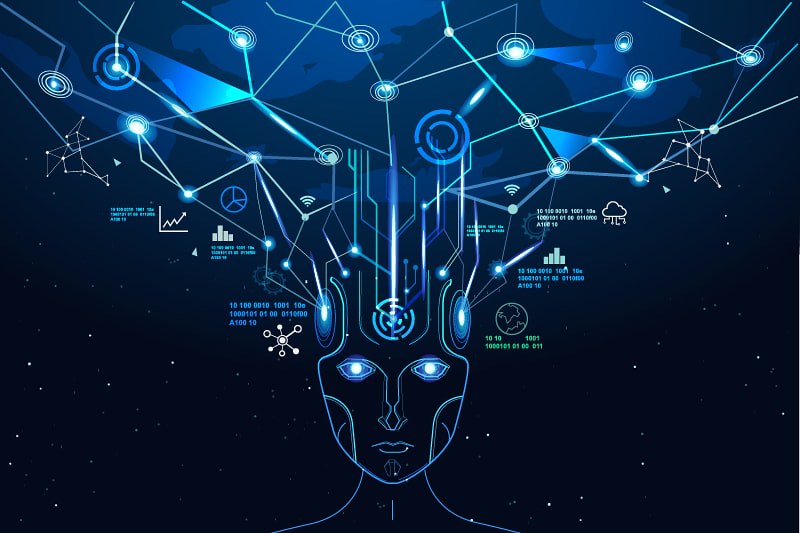Thirteen leading European and international organisations representing writers, performers, musicians and other creative professionals urge the JURI Committee of the European Parliament to strengthen protections for creators in the face of generative artificial intelligence (AI).
In a joint letter, the coalition called for an ambitious and principled response to MEP Axel Voss’s upcoming report, 'Copyright and Generative Artificial Intelligence: Opportunities and Challenges', emphasising the importance of ensuring that the development of generative AI complies with the principles of informed authorisation, remuneration, and transparency for authors, performers, and other rights holders.
This collective action, involving organisations such as the European Composer and Songwriter Alliance (ECSA), the federation of European Screen Directors (FERA), the European Writers' Council (EWC) and the European Federation of Journalists (EFJ), highlights mounting concerns about the unrestricted use of copyrighted creative works by AI models. The signatories argue that AI systems have been trained using a vast amount of copyrighted material without the necessary authorisation, remuneration or transparency, which threatens the very foundation of Europe’s creative and cultural sectors.
“Generative AI models would not exist without the works created by our members,” the letter states. “Yet they now directly compete with these works, threatening to replace human creativity and labour with devastating economic consequences.”
The signatories urge Members of the European Parliament to address what they perceive as the systemic misuse of copyright exceptions, particularly the text and data mining provisions in Articles 3 and 4 of the EU Copyright in the Digital Single Market (CDSM) Directive of 2019.
Adopted before the rise of generative AI, these provisions are now being interpreted in ways that allow the extensive exploitation of creative works without consent.
 The coalition outlines four main demands to the JURI Committee:
The coalition outlines four main demands to the JURI Committee:
1. Clarify TDM Exceptions: Initiate a democratic debate on the applicability and scope of TDM exceptions. The groups stress the need for compliance with the “three-step test,” a legal safeguard to ensure copyright exceptions are narrowly and fairly applied.
2. Implement the AI Act Without Delay: The creators reject any postponement of the AI Act’s implementation and call for full transparency regarding the data used to train AI systems. They also advocate for a presumption that generative AI systems use protected works, in order to shift the burden of proof away from rightsholders.
3. Ensure Informed Authorisation and Fair Remuneration: Creators must retain the right to give or withhold prior, explicit consent for the use of their works in AI training. Any licensing must result in appropriate compensation, not just for inputs (the original works) but also for outputs generated by AI.
4. Protect Moral Rights and Personal Data: The coalition raises serious concerns about the misuse of performers’ voices, likenesses, and other personal attributes by generative AI tools. They call for legal safeguards to protect both data and dignity.
The signatories criticise current interpretations of EU copyright law as inadequate and even contradictory to international norms and court rulings, such as the CJEU’s decision in Soulier & Doke (2016), which invalidated general opt-out systems in favour of informed consent.
Without proper regulation, they warn, creators will be left powerless against powerful AI developers, unable to even identify whether their works have been used. They also highlight how the current legal uncertainty exposes AI providers themselves to future liability.
“This is not just unfair—it is unacceptable,” the letter states, calling on the European Parliament to “promote the development of generative AI in full compliance with EU copyright law and the principles of informed authorisation, remuneration and transparency.”
Read the letter here.
--
Photo credit: deepak pal
Photo source









 The coalition outlines four main demands to the JURI Committee:
The coalition outlines four main demands to the JURI Committee: